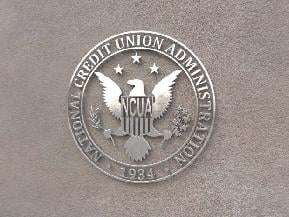<p>BALBRIGGAN, Ireland – The Republic of Ireland, the only European country with credit unions directly affected by the Euro, made a smooth transition to the new currency, with a few bumps and some laughs along the way. England, Scotland, Wales and Northern Ireland have stayed with the English pound, claiming fears for British sovereignty. The other European countries, which have converted to the Euro, do not have credit unions. The issue of lost sovereignty is not a problem for the Irish, said Martin Mullen of Balbriggan Credit Union in Balbriggan. Despite a slight recession, the Republic of Ireland’s economy is still one of the strongest in the world, and the country as a whole has been positively affected by adhesion to the European Union (EU). Most people think of themselves as Irish-Europeans, Mullen said. He predicts an eventual Federal States of Europe, much like the U.S. The successful change to the Euro by credit unions in the Republic of Ireland was the result of three years of preparation with the most intensive activity beginning last year. For Americans the undertaking would be the same as if Canada, Latin America and the U.S. all did away with their respective monies and began to use a merged currency called the America in the place of dollars and pesos. To help in the transition, the Irish Credit League of Credit Unions (ILCU) established a Euro help desk. Jackie Faye of ILCU spoke with Credit Union Times about their activities which included marketing materials, videos, training courses, CDs, sample coin packets and open telephone lines. Faye gave out the statistics – of the 431 credit unions in the Republic of Ireland and the 104 in Northern Ireland, 301 repeatedly contacted the help desk with questions. Only 49 credit unions in the two countries did their own thing completely, and according to Faye, these were the larger, more self-sufficient credit unions. Northern Ireland didn’t convert, but credit unions along the border do accept Euros in the same way they accepted the old punts and other foreign currencies. Because Irish punts will remain in circulation until February 9, credit unions on both sides of the border will routinely handle three currencies. One hundred-forty credit unions held ILCU-run training programs, although most of these sessions were attended by two or more credit unions. Some 856 credit union employees took the courses. Although training started in 1998, most training took place since August 2001. Not surprising, the problems of conversion were vast from a back office point of view. Changes in computer programs, cash trays, change machines, documentation, and ATMs all had to be ready to go January 1st. Unlike in Italy where the ATMs weren’t ready to handle the Euro and still are not functioning properly, Republic of Ireland’s ATMs were up and running just fine. Monthly statements have been given both in Euros and punts for over a year. Now the punts will be dropped. The Republic of Ireland has been lucky to avoid the insufficient change problems experienced in some other countries. In fact, Mullen said they had so much change delivered that they needed to buy a wheelbarrow to move it around. Still, there were some unforeseen glitches. The Euro currency features a series of bills that are a variety of colors and are easy to distinguish. However, the Euro coins are a little harder for credit union members to get used to. Thomas Fitzpatrick, manager of Dunleer Parish Credit Union in Dunlee, said the coins are a bit confusing. The smaller coins are copper, the larger silvers and the one and two Euro coins are a metal mixture. Coin packets were made available to credit union members in mid-December to help them get used to the money, Faye said. Pre-planning was necessary. Packets had to be ordered in August. Many credit unions found it was best to have two lines for members in their branches, one for money exchange and one for deposits. Fitzpatrick reported that in his credit union they had a separate Euro desk, and it was a great help in moving traffic. Likewise Mullen said the average wait in line at his credit union was 11 minutes in comparison to the 55 minutes at the local bank. He felt if the same teller had to convert money, then do the transactions, it would have taken longer. Mullen’s transactions were up 760% the first week of January over the same period in 2001. His staff is showing the strain, and he plans to do something to show his appreciation after the February 9th dual-currency deadline has passed. He said he has heard a number of other credit unions are also planning to reward their staffs for their positive attitudes during the stressful transition time. Euro-sceptics who predicted mayhem with the new currency, obviously didn’t count on the well-organized Irish government, people and credit unions. For such a vast undertaking, the transition bordered on miraculous. -</p> <p>[email protected]</p>
 Search
Search














 Copyright © 2024 ALM Global, LLC. All Rights Reserved.
Copyright © 2024 ALM Global, LLC. All Rights Reserved.